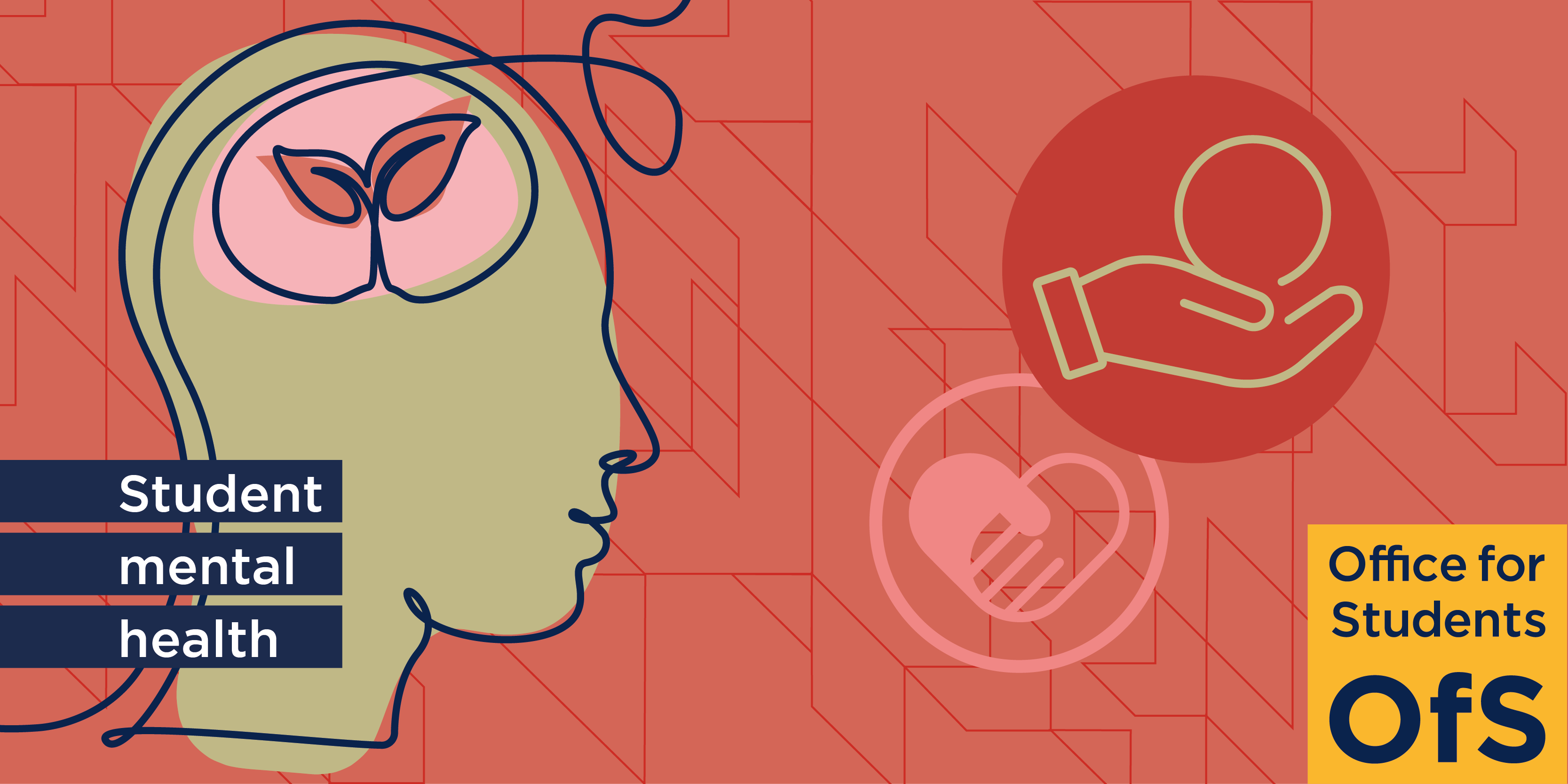An independent evaluation of the Office for Students’ (OfS's) Mental Health Funding Competition found that the programme supported 3,241 students and trained 316 staff to provide targeted mental health support for students.

With investment from the Department of Health and Social Care (DHSC) and the Department for Education (DfE), the OfS awarded more than £3 million in funding through the Mental Health Funding Competition (MHFC) to identify effective practice for targeted student mental health support.
The fund supported 18 projects led by universities and colleges, to pilot innovative approaches to supporting the mental health of particular groups of students who may be at greater risk of poor mental health or who may face barriers to accessing support. Approaches included peer-to-peer mentoring, awareness raising campaigns, connecting with NHS services, and digital solutions such as virtual reality experiences.
This final independent programme-level evaluation report produced by Wavehill explores how the MHFC addressed barriers to mental health support among target groups, what impact the programme has had, how these approaches could be adopted by other universities and colleges, and how they might be sustained.
The evaluation found that the MHFC programme has:
- engaged 1,057 students in the development of the programme including through activities such as peer-to-peer support and student-led workshops
- established or developed strategic partnerships across the sector, including with 83 partner organisations that were involved in the design or delivery of projects.
The programme also effectively delivered on its aims to change staff understandings of the barriers to accessing support experienced by diverse groups of students. The evaluation found that:
- 64 per cent of students involved in project development agreed that the support now available is more relevant to student needs
- there has been a considerable improvement in staff knowledge of the barriers faced by target groups, as a result of staff facilitating student co-creation activities or receiving training
- short-term outcomes suggest that the programme has had a broadly positive impact on students engaged in interventions – including early positive improvements in mental health or wellbeing, improved equity of access to support, raised confidence to disclose and seek help for mental health issues, and improved sense of belonging and perception of support services.
This evaluation report aims to provide universities, colleges and the wider higher education sector with the resources to identify strategies for improving support for students who may face increased barriers to mental health support or may be at increased risk of experiencing poor mental health.
John Blake, Director for Fair Access and Participation for the Office for Students (OfS), said:
'This report has highlighted the value of targeted, innovative and intersectional mental health support for students. It is heartening to see the majority of the students who helped develop the projects agree that this programme has generated more relevant support for student needs.
'The legacy of this programme, however, relies on the sector’s determination to share, learn from, and embed these insights. We encourage all universities and colleges to read this evaluation and learn about what evidence-based interventions may be appropriate for their own students. Those providers crafting their access and participation plans should consider how this work can inform those. Equality of opportunity is vital for students to thrive and succeed in higher education, and it is essential that we continue to implement robust evaluation practices that help us to understand what methods of support are effective for students'.
Notes
- In 2022, the OfS published an interim report on the Mental Health Funding Competition, focusing on co-production with students within the programme.
- The partner organisations involved in the programme include 27 other universities and colleges, 17 further education colleges, 15 NHS organisations, seven students’ unions or student union representatives, and a range of other third sector, private sector and public sector organisations.
- The funded projects were awarded funding in two phases (July 2021 and August 2021), and most projects commenced delivery at the beginning of the 2021-2022 academic year. All projects were completed between March and September 2023.
